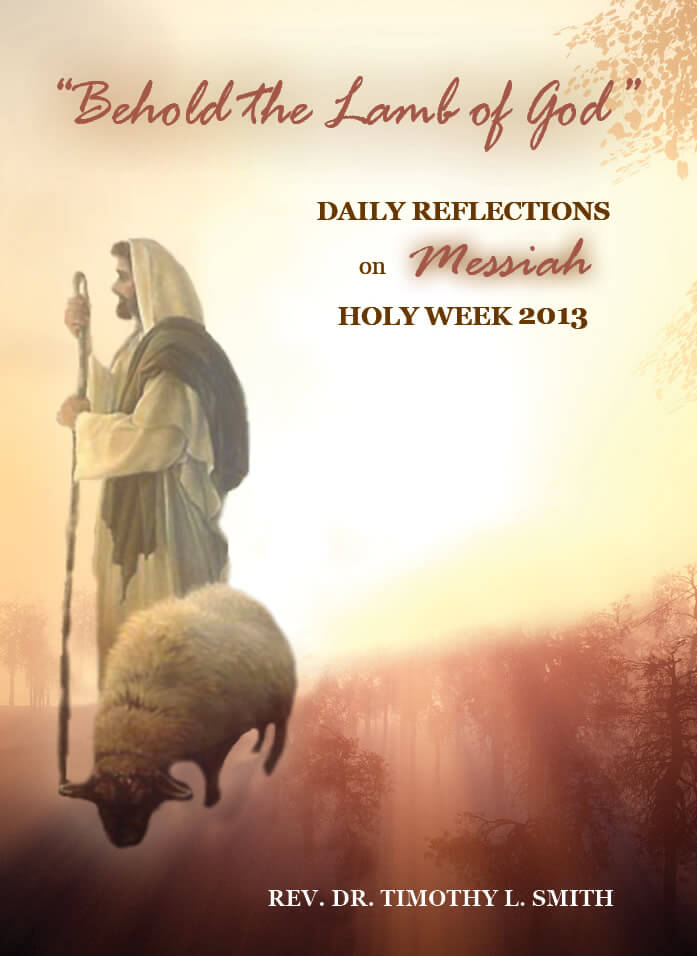As you read and reflect on today’s Holy Week devotional, please listen to these tracks from “Messiah”.
“Then shall be brought to pass the saying that is written: ‘Death is swallowed up in victory’. O death, where is thy sting? O grave, where is thy victory? The sting of death is sin, and the strength of sin is the law. But thanks be to God, who giveth us the victory through our Lord Jesus Christ.”
I Corinthians 15:54-57
TEXT
I felt my heart would explode the morning we rode to the cemetery to bury my father. My mother sobbed on the way that she had made too many trips to the cemetery where my sister, grandparents, and other family were buried. Death strutted and blustered before us that day, seeming invincible. It felt that death would have the last word.
But in the years since, as a pastor, I have stood over many open graves and taunted death with the victorious word of today’s Scripture text: “O death, where is thy sting? O grave, where is thy victory?” Just as the grave swallows up life so through Messiah “Death is swallowed up in victory”. Messiah will have the last word against the “last enemy” (I Corinthians 15:26).
In this great chapter on resurrection (I Corinthians 15) the Apostle Paul provides proof for our resurrection from the dead. He sets forth Messiah’s resurrection as the “first fruits” and guarantee of our own: “But if there is no resurrection of the dead, then is Christ not risen” (I Corinthians 15:13). If we are not raised from the dead, then Christ is not raised. His resurrection is the pledge of our resurrection.
To buttress his argument for our resurrection Paul quotes from Old Testament Scriptures: “Death is swallowed up in victory” (Isaiah 25:8), and “O death, where is thy sting? O grave, where is thy victory?” (Hosea 13:14). Paul looks to the ancient Scriptures to mock death at its defeat.
Because Messiah overcomes death by paying the wages of our sin (Romans 6:23) death can no longer hold us (Romans 5:12-21). In today’s text “the strength of sin is the law” speaks of our guilt in having violated God’s righteous law. But through Messiah our guilt is gone. Jesus has made death the doorway into glorious life. Bible scholar Richard Lenski notes how Messiah’s victory over death is His victory over all that death has ever done:
Death is not merely destroyed so that it can’t do further harm while all the harm which it has wrought on God’s children remains. This tornado is not merely checked so that no additional homes are wrecked while those that were wrecked still lie in ruin. The destruction of death is far more intense. Death and all its apparent victories are undone for God’s children (The Interpretation of I Corinthians, Lenski).
The thought of Messiah’s victory over sin and death compels Paul to burst forth into grateful praise: “But thanks be to God, who giveth us the victory through our Lord Jesus Christ.” We cannot help but note that Paul puts the victory not in the past tense but in the present tense: “giveth us the victory”. His victory and resurrection power are available to us now. Each day we awaken to an Easter morning of living in Messiah’s resurrection life and power. Thanks be to God!
MUSIC
There are three movements in this scene:
- A short solo recitative narration (“Then shall be brought to pass…”)
- An alto-tenor duet taunting defeated death (“O Death where is thy sting…”)
- A triumphant chorus answering (“But thanks be to God…”)
After the recitative, the alto and tenor “enjoy tossing their taunts at death back and forth above a light and bouncing bass line” (Stapert). Their duet is in E flat major which was associated with bold and heroic music. The second part of the duet becomes more serious as the music contemplates how “the sting of death is sin, and the strength of sin is the law”.
The chorus responds jubilantly to the taunt over death in the same key and tempo, “But thanks be to God who giveth us the victory…” The bass voices provide the melody, strong and assured, as the other voices answer, weaving back and forth, in and around the basses.Finally all the voices unite, coming together in a confident rhythmic climax, declaring our victory “through our Lord Jesus Christ.”
PRAYING MESSIAH
- What do you sense that God might be saying to you in today’s Scripture text and music from Messiah?
- What do you want to say to God?
- Now take a few moments to be still in God’s presence.



